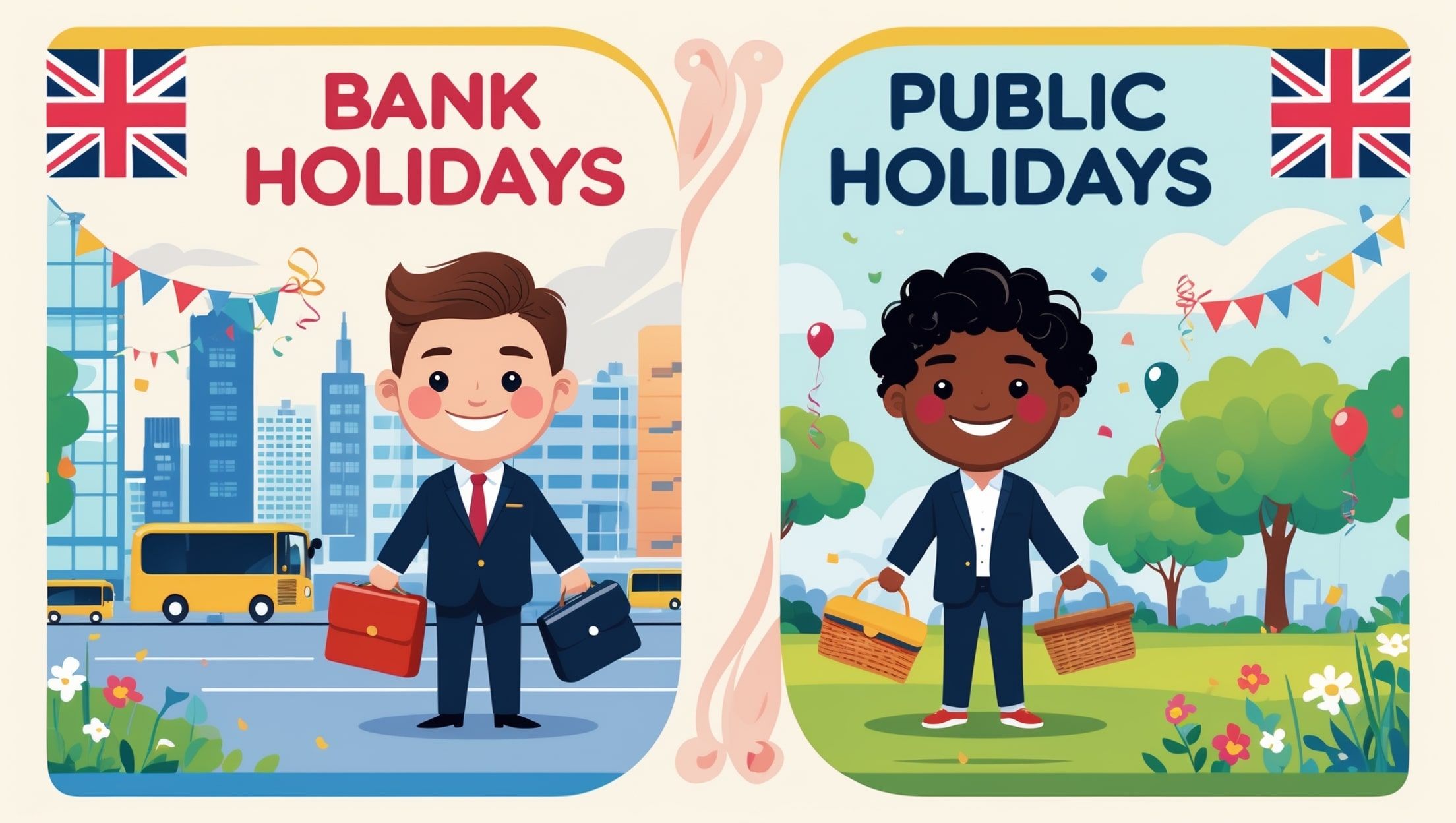In the UK, you’ll often hear people talk about bank holidays and public holidays like they’re the same thing. And in most day-to-day conversations, they are. But if you’re wondering whether there’s actually a difference, the answer is yes, though it’s a small one that’s mostly about legal definitions.
What are bank holidays?
Bank holidays are official days when banks and many businesses close. They’re set by statute (laws passed by Parliament), royal proclamation, or common law. Most people get the day off work, although it’s not a legal requirement for employers to grant time off.
England and Wales, Scotland, and Northern Ireland each have their own list of bank holidays, with some shared and some unique to each region. For example, St Andrew’s Day is a bank holiday in Scotland but not in England, reflecting the variation seen across different countries within the UK.
How about public holidays?
Public holidays is a broader term that includes bank holidays, but also covers other days recognized for observance or celebration. It’s more of a general phrase and isn’t always defined in law the way “bank holiday” is.
In practice, most people use “public holiday” and “bank holiday” to mean the same thing: a recognised day off. But in legal documents or employment contracts, the difference can matter. This distinction can influence payroll or scheduling, much like the considerations discussed in UK public holiday pay requirements.
When they actually differ
The distinction shows up most clearly in Scotland. There, local councils can designate additional public holidays that aren’t official bank holidays. These might be based on local tradition or historical events. Businesses can choose whether to observe them or not, similar to how Germany’s states handle regional holidays.
So in parts of Scotland, a shop might close for a public holiday that doesn’t appear on the official bank holiday list. That’s rare in England and Wales, where the terms almost always refer to the same set of days.
What this means for your time off
From an employee’s perspective, what really matters is what your contract says. Some jobs specify time off for “bank holidays,” others for “public holidays,” and some just say “statutory holidays.” Employers aren’t legally required to give these days off, but most do, especially for full-time staff. For those who use digital calendars, it’s worth knowing how to manage holiday visibility, as explained in fixing missing public holidays on your calendar.
If your job includes shift work or you’re in retail, you might be expected to work bank holidays and take your time off another day. That’s pretty common in the UK and usually comes with extra pay or a substitute day off. These variations are sometimes reflected on workplace calendars that help employees plan around their schedules.
The simple version
For most people in the UK, bank holidays and public holidays mean the same thing: a welcome day off. The technical difference is mostly felt in legal or official contexts, especially in Scotland where more regional variation exists. Understanding those local differences can be as helpful as using a world clock when coordinating time across regions.
So next time someone says “It’s a bank holiday Monday,” they’re not wrong. Just know that there’s a tiny bit more to it than meets the eye.









